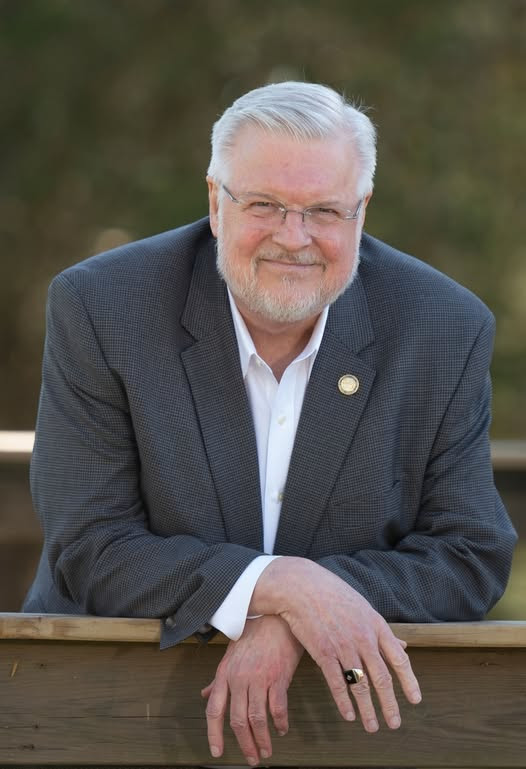By Rev. Mark Creech
Revmarkcreech.org
As a teenager, I learned that my step-grandfather had fought in World War II. Shrapnel had fused his spine, leaving him unable to turn his head to the right or left. One day, I asked him about his combat experience. He looked at me solemnly and said, “I’m going to tell you about it this one time, but I don’t want you ever to ask me again.” He continued with a distant, haunted look, “I’ve seen bodies in the water so thick you could walk across them without getting your feet wet.”
His words echoed the horrific realities of battles like Tarawa, Peleliu, Saipan, and Okinawa, where American soldiers fell in such numbers that the surf was choked with the dead. These were the unspeakable costs of securing a foothold in the Pacific. One Marine would describe these beaches as a “red carpet of death.” These were bloody victories purchased yard by yard, strewn with corpses, and seas turned crimson.
Union Army General William Tecumseh Sherman, no stranger to the horrors of conflict, once wrote, “War is cruelty, and you cannot refine it.” Later, he told some young cadets at Michigan Military Academy in 1879, “War is hell.”
What my grandfather saw in Japan was hell on earth. William Tecumseh Sherman had witnessed much the same, and it takes a rare breed of men willing to walk into that hell so that peace might prevail. These men fought, bled, and died, not for the thrill of battle but for the love of those they sought to spare from the inevitable horrors that would come if they did not.
Memorial Day is not simply a day for remembering those who have fallen in America’s wars – it is a day for remembering who the fallen were – and what they were made of. They were not only victims of graphically violent conflict but men of character, conviction, and unshakeable resolve. Men who, like General George S. Patton, understood that war, though horrific, is sometimes unavoidable and necessary, and those called upon to wage it must be formed by a special fire.
Patton once addressed his troops in an inspirational speech that wasn’t broadcast or recorded but more of a pep talk leading up to the Allied D-Day invasion – a massive and courageous assault launched to liberate Nazi-occupied France. It would strike a decisive blow against Hitler’s tyranny in Europe.
The New York Daily News printed the speech in 1945, and the New American Mercury magazine later published it in 1951. Patton’s language in the speech was laced with profanity, not uncommon among soldiers in war, and the General was speaking only with the men who were prepared to die with him. But it cut to the raw truth of combat and duty. What he said that day would probably jar modern ears, but it captures the mindset of the men we honor on Memorial Day – the mentality of the warriors who fought not for the glory of killing but for the glory of victory, freedom, and peace.
The following are snippets of Patton’s legendary speech, admittedly sanitized.
“Be seated.
“ You are here today for three reasons. First, you are here to defend your homes and your loved ones. Second, you are here for your own self-respect, because you would not want to be anywhere else. Third, you are here because you are real men….“Death must not be feared. Death, in time, comes to all men. Yes, every man is scared in his first battle. If he says he’s not, he’s a liar. Some men are cowards, but they fight nonetheless – or the fear is driven from them as they witness others fight with just as much fear, yet with courage. The real hero is the man who fights even though he is scared. Some men get over their fright in a minute under fire. For some it takes an hour. For some it takes days. But a real man will never let his fear of death overpower his honor, his sense of duty to his country…
“When a man is lying in a shell hole, if he stays there all day, the enemy will eventually get to him. That kind of thinking won’t do. We’re going to win this war – but we’ll win it by fighting, and by showing the enemy that we have more courage and determination than they do, or ever will have. We’re not just going to defeat them – we’re going to break their will and use it to drive the advance of our forces.
“War is a bloody, killing business. You’ve got to spill their blood, or they will spill yours. Rip them up the belly. Shoot them in the guts. When shells are hitting all around you and you wipe the dirt off your face and realize instead of dirt it’s the blood and guts of what once was your best friend beside you, you’ll know what to do!
“I don’t want to get any messages saying, ‘I am holding my position. We’re not holding a thing. Let the Germans do that. We are advancing constantly and we are not interested in holding onto anything…Our basic plan is to advance and to keep advancing regardless of whether we have to go over, under, or through the enemy…
“I believe in the old sound rule that an ounce of sweat will save a gallon of blood. The harder we push, the more Germans we will kill. The more Germans we kill, the fewer of our men will be killed. Pushing means fewer casualties. I want you all to remember that.
“There is one great thing that you men will be able to say after this war is over and you are home once again. You may be thankful that twenty years from now when you are sitting by the fireplace with your grandson on your knee and he asks what you did in the great World War II, you won’t have to cough, shift him to the other knee and say, ‘Well, your granddaddy shoveled muck in Louisiana.’ No, sir, you can look him straight in the eye and say, ‘Son, your granddaddy rode with the great Third Army – and a tough old general named George Patton.’”
In his book Battle Cries, James Inglis describes General Patton as “outwardly very, very tough.” Yet, Inglis adds, “he was also deeply religious, soft-hearted, emotional, and easily moved to tears.”
As I reflect on the memory of my step-grandfather, his back scarred by shrapnel, his spine fused, his head fixed forward because he could no longer turn it, I think about the kind of man he was. He bore the marks of war on his body and deep within his spirit. And yet, he carried them with a quiet dignity. He was a man’s man: religious, soft-hearted, and sometimes emotional. He survived the war, but many of his brothers in arms, men just like him, did not.
This Memorial Day, let us remember that our freedom rests on the shoulders of such men – those who answered the call, fulfilled their duty, bore the burden, and paid the ultimate price.


